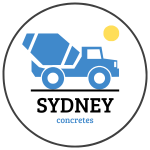Concrete Slab in Sydney
Build It Right! Quality Concrete Services Just a Quote Away!
Sydney Concrete Slab
When it comes to building any structure, the concrete slab is one of the most important elements. Whether you’re planning a new home, a shed, a patio, or an extension, having a durable and well-installed slab is essential. If you’re searching for concrete slab Sydney services, you’re in the right place. This page will help you understand the different slab options, their uses, benefits, and what to consider before starting your project.
Why Choose a Concrete Slab for Your Sydney Property?
A concrete slab is more than just a flat piece of concrete. It provides the foundation that supports the entire structure. The strength, finish, and longevity of your slab will directly impact the performance of your building.
Here are a few reasons why concrete slabs are popular in Sydney:
Durability – Properly poured slabs can last for decades with minimal maintenance.
Versatility – Slabs can be used for houses, sheds, garages, patios, driveways, and more.
Low Maintenance – Once sealed, a concrete slab requires very little upkeep.
Customisable – Options like coloured concrete, stamped finishes, or exposed aggregate allow you to match the style of your property.
If you’re looking for a concrete contractor near me, a slab is often the starting point for most construction projects.
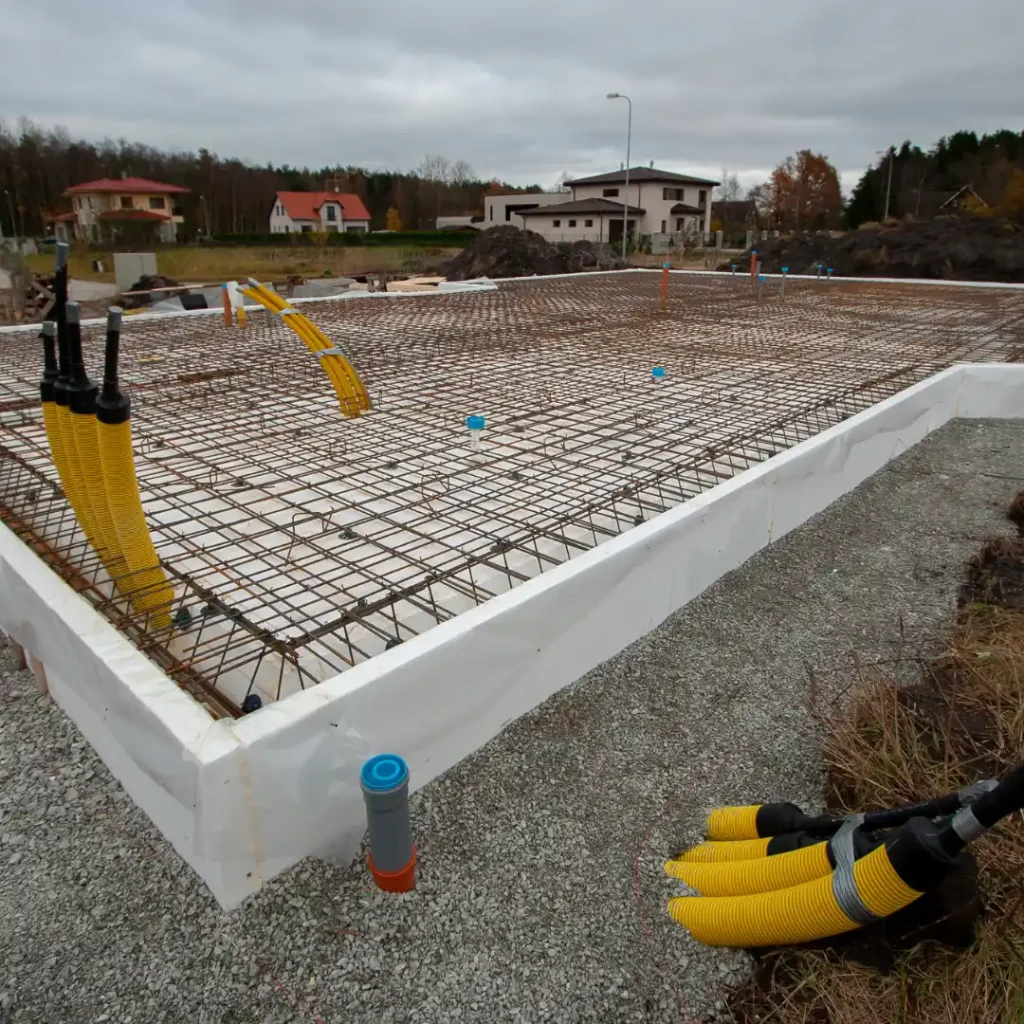
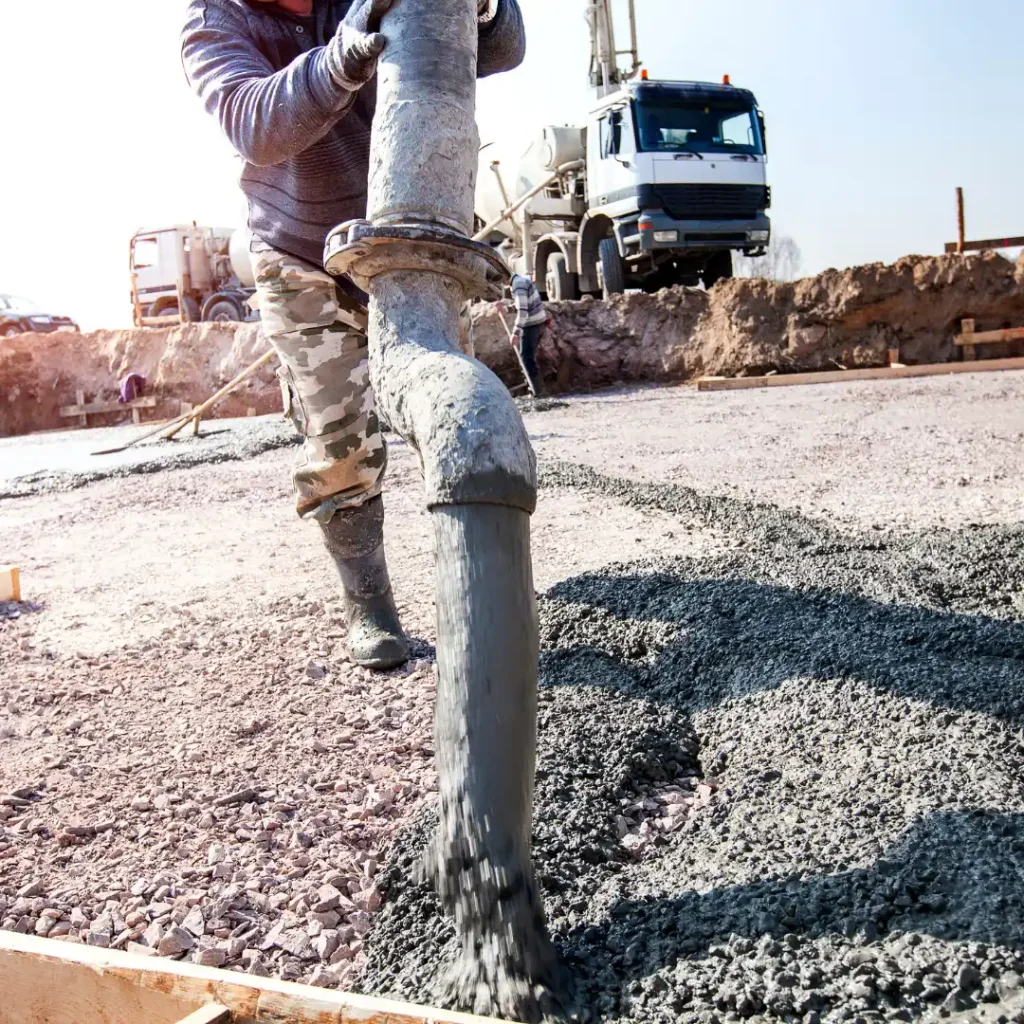
Types of Concrete Slabs Available in Sydney
Not all slabs are the same. The type you need depends on your project size, soil conditions, and intended use. Below are some of the most common slab options.
1. House Slabs
A house slab is the main foundation for residential construction. These slabs are carefully engineered to handle heavy loads and provide a level base for the entire home. In Sydney, house slabs are designed to suit local soil conditions, ensuring stability and durability.
2. Shed Slabs
If you’re building a garden shed, workshop, or storage unit, a concrete slab for sheds provides a flat, stable surface. A shed slab also prevents moisture rising from the ground, keeping the space dry and usable year-round.
3. Garage & Driveway Slabs
For garages, workshops, or driveways, slabs must be reinforced to withstand constant vehicle traffic. A driveway concrete slab in Sydney is usually thicker than a standard patio slab to handle heavier loads.
4. Patio & Outdoor Slabs
Outdoor entertaining areas like patios, pool surrounds, or pathways often use decorative slab finishes. Options like coloured concrete, stamped patterns, or exposed aggregate give both style and strength.
5. Concrete Pads
A smaller option, concrete pads are used for specific areas such as air conditioning units, clotheslines, or spa bases. They’re quick to install and provide long-lasting support.
Each project has unique requirements, so choosing the right concrete slab contractor in Sydney makes a big difference.
What to Consider Before Pouring a Concrete Slab
Before starting your slab project, it’s important to plan carefully. Here are key factors to think about:
Site Preparation – The ground must be level, compacted, and stable. Poor preparation can lead to cracks or uneven surfaces.
Reinforcement – Steel mesh or rebar strengthens the slab, preventing shifting or sinking over time.
Thickness – Standard slabs are usually 100mm thick, but heavy-duty slabs may be 150mm or more.
Drainage – Proper drainage around the slab prevents water pooling and extends its lifespan.
Finishes – Depending on the use, you may choose a broom finish, smooth finish, or decorative surface.
If you’ve been searching for concreters near me to install a slab, these are the questions you should ask before starting the job.
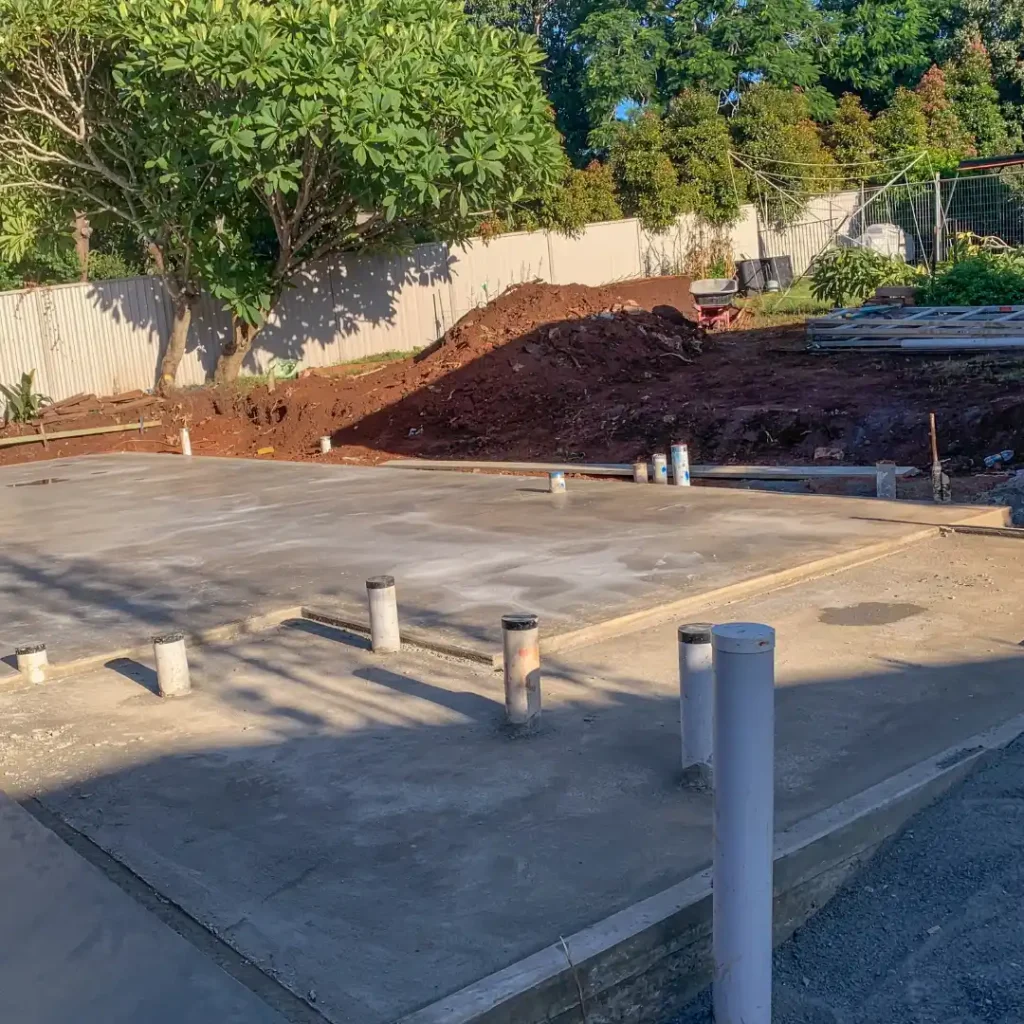
Request A Quote
Complete the form below & we’ll contact you shortly.
Benefits of a Professionally Installed Concrete Slab
Installing a slab may seem straightforward, but precision is key. A well-poured slab provides:
Strength & Stability – Essential for supporting structures like houses or garages.
Longevity – A properly reinforced slab can last for decades.
Cost Efficiency – Compared to timber or other materials, concrete is affordable and long-lasting.
Flexibility – From plain grey to decorative finishes, you can choose a style that fits your project.
Whether it’s a slab on concrete foundation or a small concrete pad, quality installation ensures the best results.
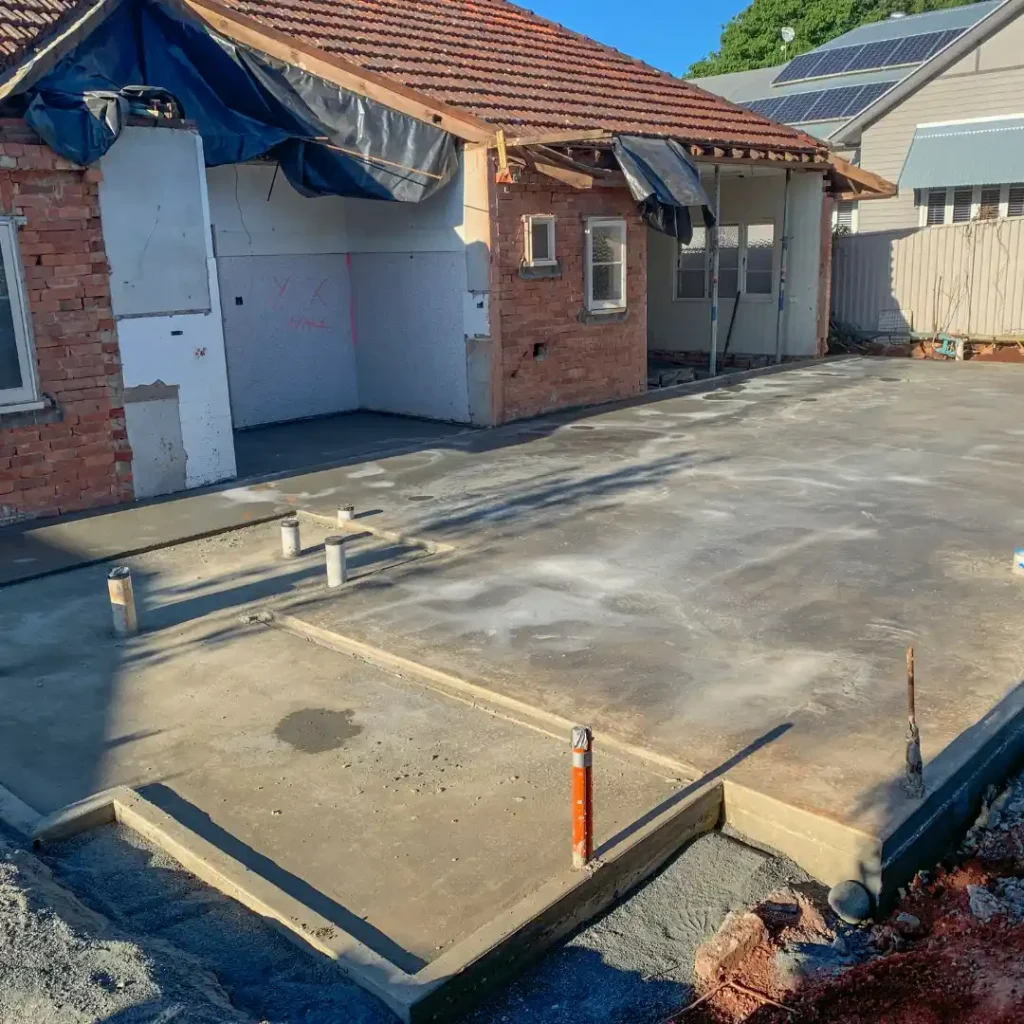
Concrete Slab Finishes Available in Sydney
Concrete doesn’t have to look plain. Many property owners in Sydney choose decorative finishes for both style and function.
Coloured Concrete – Pigments are added for a wide range of shades.
Stamped Concrete – Patterns that mimic stone, brick, or pavers.
Exposed Aggregate – A textured, slip-resistant surface ideal for driveways and outdoor areas.
Polished Concrete – Sleek and modern, often used indoors or in garages.
These finishes not only improve the look but also add durability, making them a popular choice for concrete slabs Sydney projects.
How Long Does a Concrete Slab Last?
A common question for homeowners is how long a slab will last. With proper installation and minimal care, a concrete slab in Sydney can last over 30 years.
Here are some tips for longer-lasting slabs:
Apply a sealing concrete coat to protect against stains and moisture.
Clean the surface regularly to prevent buildup.
Repair small cracks early to stop them from spreading.
Avoid using harsh chemicals that may weaken the concrete.
With these steps, your slab will remain strong and functional for decades.
Cost of a Concrete Slab in Sydney
The cost of a concrete slab Sydney depends on size, thickness, finishes, and site conditions. On average, prices are calculated per square metre. A small shed slab may cost much less than a reinforced house slab.
Factors affecting price:
Excavation & site prep
Reinforcement required
Type of finish (plain, coloured, exposed aggregate, stamped)
Access to the site
If you’re comparing prices, search terms like price on concrete slab or concreting cost Sydney can help, but remember that the cheapest option may not always provide the longest-lasting results.
Residential & Commercial Concrete Slab Services in Sydney
Concrete slabs are used in both residential and commercial projects.
Residential Slabs – For houses, patios, sheds, and driveways.
Commercial Slabs – For warehouses, car parks, or retail spaces where heavier loads are expected.
Both require correct preparation and finishing to ensure durability. If you’re searching for concrete contractors Sydney for slabs, make sure they can handle both residential and commercial jobs.
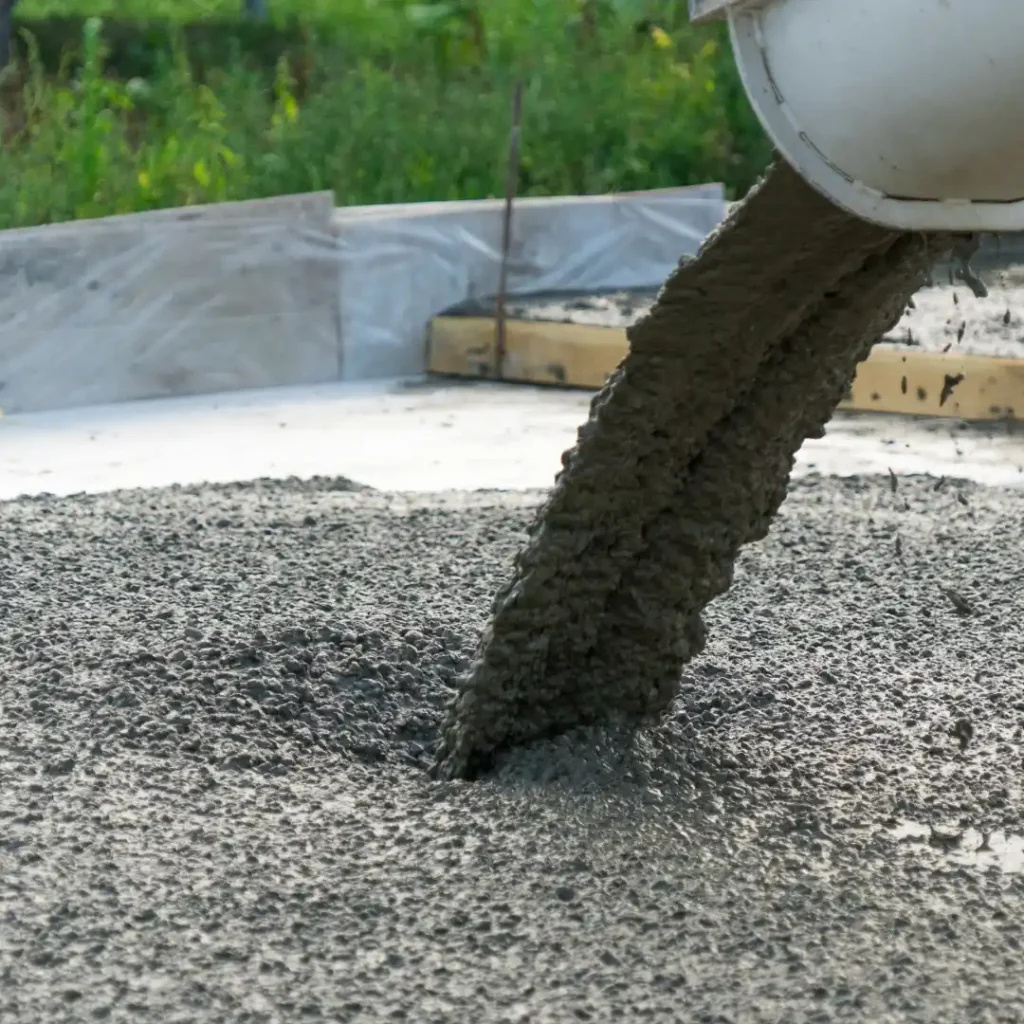
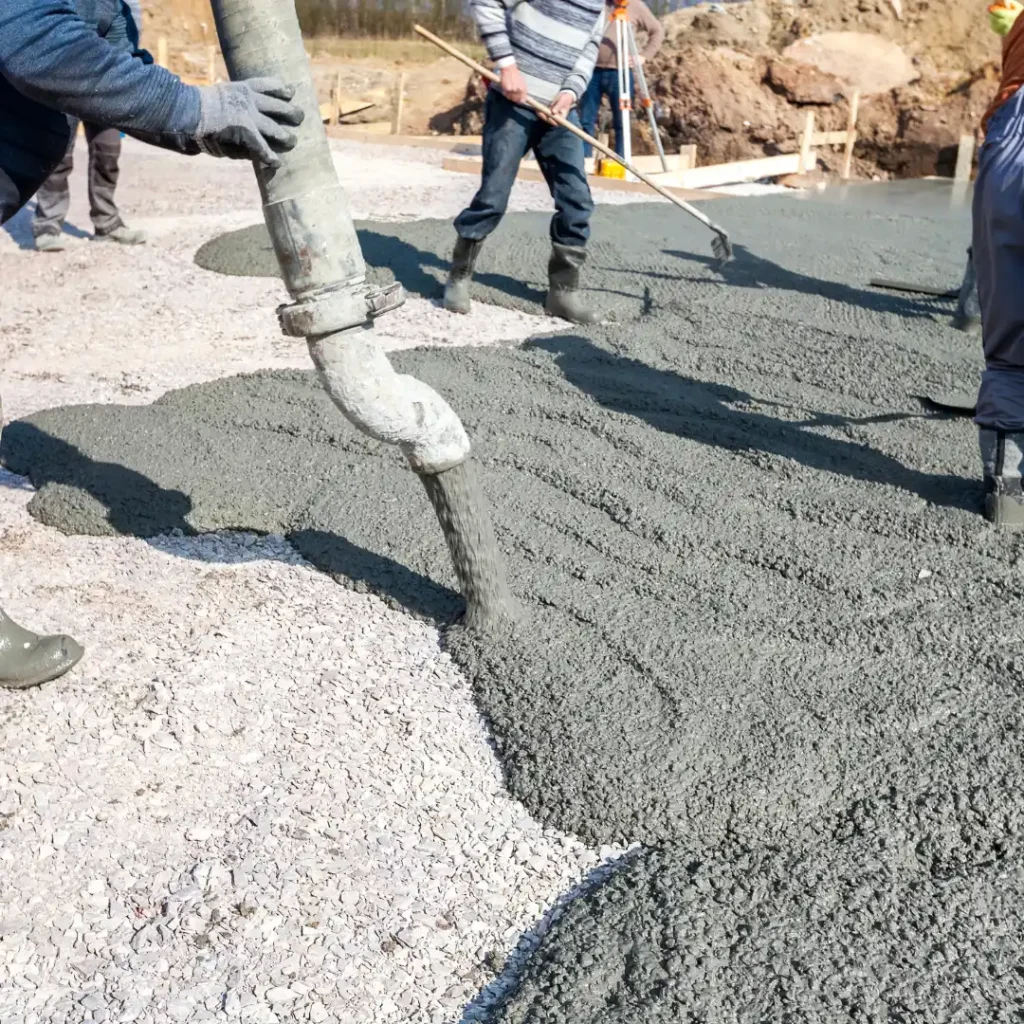
Common Uses for Concrete Slabs in Sydney
Concrete slabs are used across many projects. Here are some examples:
New home builds and extensions
Garage bases and carports
Garden sheds and storage areas
Driveway and footpath slabs
Patios and outdoor entertaining areas
Workshop and industrial flooring
Whatever your project, a concrete slab Sydney is often the starting point.
If you’re planning a project that requires a concrete slab in Sydney, it’s best to start with the right team who can prepare, pour, and finish your slab to suit your needs. Whether it’s for a house, shed, driveway, or patio, having the correct foundation ensures your project will last.
Contact Sydney Concretes today to discuss your project and get a quote for your slab installation.
Understanding the Role of a Concrete Slab in Modern Construction
A concrete slab is one of the most widely used structural elements in modern building projects. It forms a flat, horizontal surface that acts as both a foundation and a functional floor. In Sydney, where residential, commercial, and industrial development continues to expand, concrete slabs play a critical role in providing durability, stability, and design flexibility.
The Purpose of a Concrete Slab
Concrete slabs are designed to:
Provide structural support for walls, columns, and roofs.
Create a stable and level surface for living spaces, driveways, or industrial flooring.
Resist soil movement, ensuring the safety and longevity of buildings.
Prevent moisture ingress when paired with proper waterproofing.
Different Situations Where Slabs Are Needed
In Sydney’s construction sector, slabs are used in a variety of projects:
Residential homes – forming the base of the house.
Garages and sheds – offering a strong, load-bearing surface.
Outdoor areas – patios, pathways, and pool surrounds.
Industrial and commercial projects – warehouses, workshops, and retail spaces.
Engineering Considerations
A concrete slab is not poured without careful planning. Structural engineers determine the appropriate thickness, reinforcement, and soil treatment before work begins. For example, reactive clay soils in certain Sydney suburbs require special slab designs to prevent cracking or shifting over time.
By understanding the role of a concrete slab in construction, property owners and builders can make better decisions about which slab type suits their project.
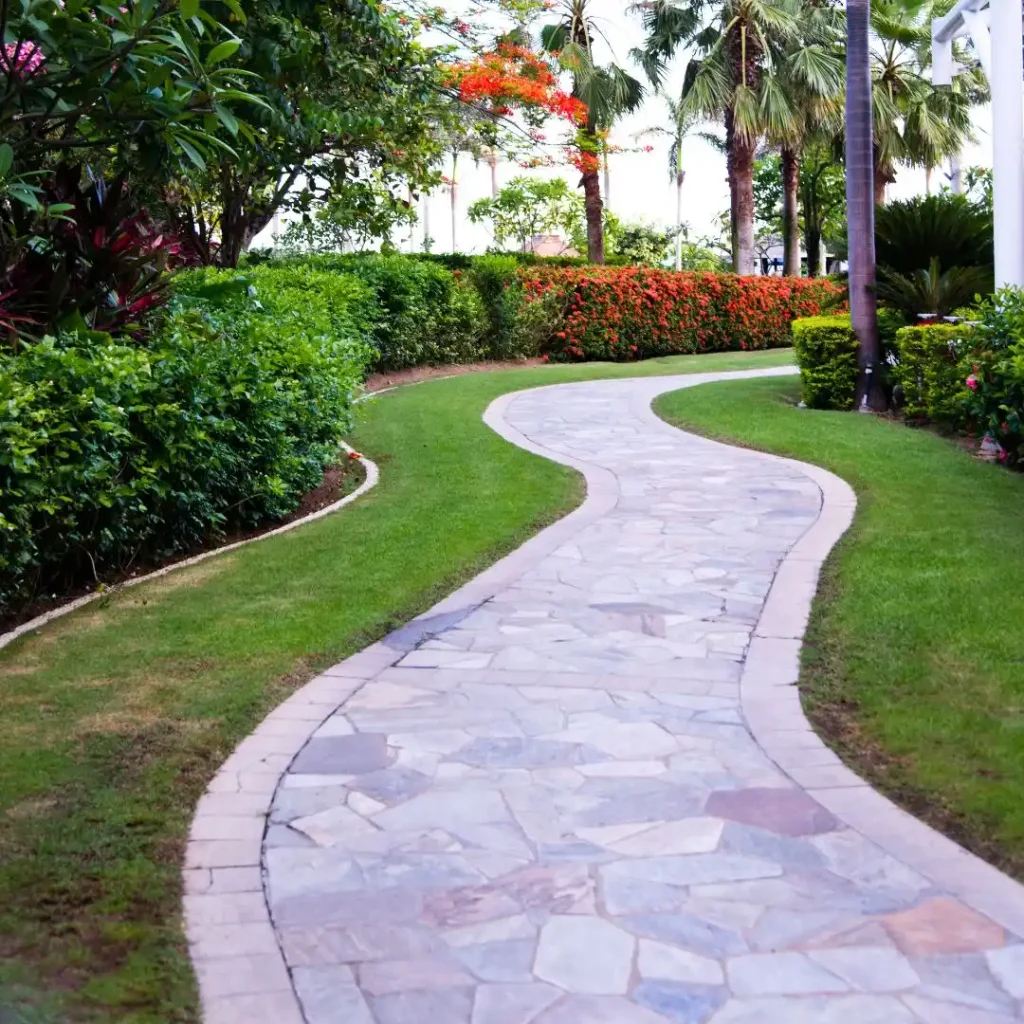
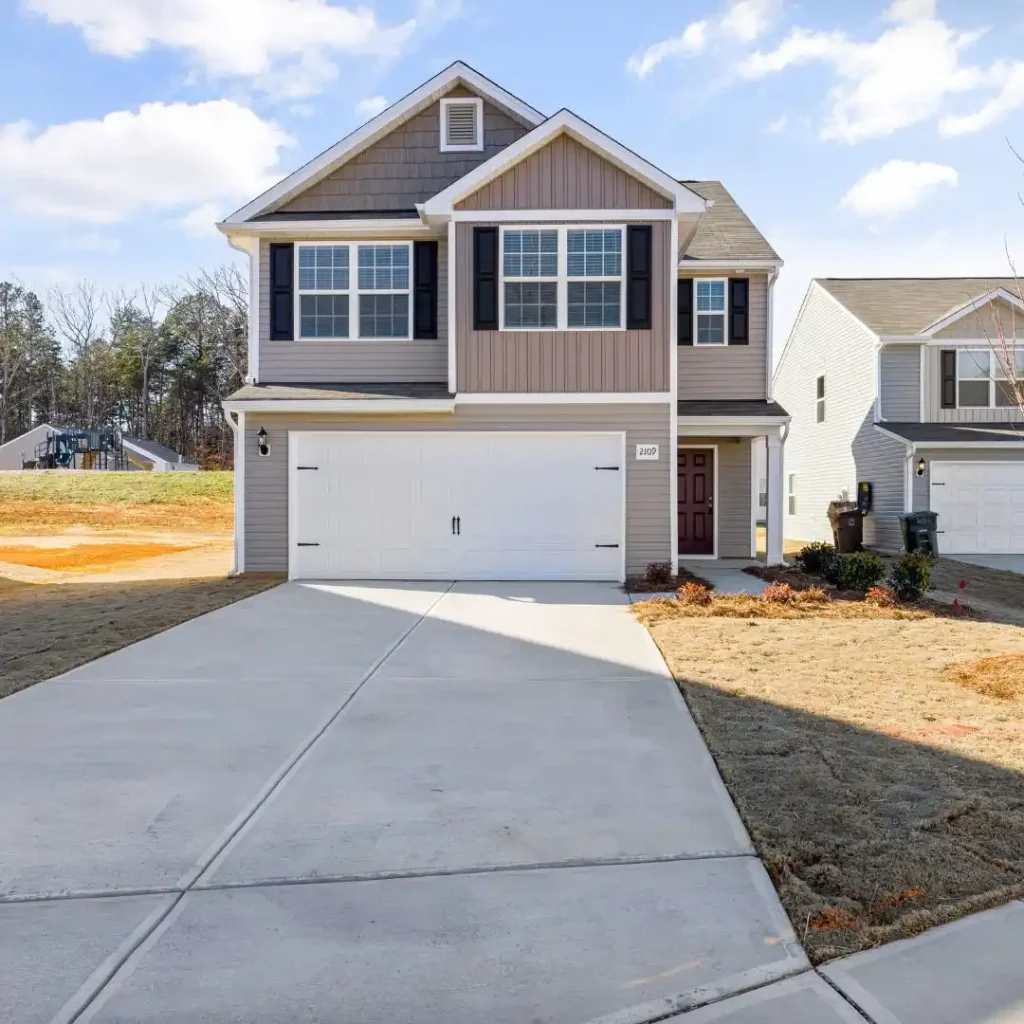
Types of Concrete Slabs and Their Applications
Not every concrete slab is built the same way. The design depends on the project size, soil type, and expected load. In Sydney, a wide variety of slab types are used to cater to different needs.
Common Types of Concrete Slabs
Slab-on-Ground
Poured directly onto a prepared base.
Common for residential homes, garages, and small structures.
Cost-effective and quick to install.
Suspended Slab
Elevated slabs supported by columns, beams, or walls.
Often used in multi-storey buildings, balconies, and basements.
Requires advanced engineering and reinforcement.
Raft Slab
Features a grid of concrete beams running in both directions.
Distributes loads evenly, making it ideal for areas with poor soil conditions.
Popular for houses in Sydney suburbs with reactive soils.
Waffle Pod Slab
Uses polystyrene void formers (waffle pods) to reduce concrete usage.
Lightweight, thermally efficient, and quick to install.
Common for residential builds.
Industrial Slabs
Extra-thick slabs designed to withstand heavy machinery, trucks, and constant wear.
Reinforced with steel and often finished with hardeners for strength.
Choosing the Right Slab for Your Project
When planning a concrete slab, consider:
The intended use (residential vs. industrial).
Load requirements (vehicles, heavy equipment, foot traffic).
Soil conditions (stable vs. reactive ground).
Budget and timeframe for construction.
Understanding the different types of slabs helps ensure the correct foundation is chosen for long-term durability.
Key Factors That Affect the Performance of a Concrete Slab
Even the strongest concrete slab can underperform if not designed and installed correctly. To maximise its lifespan, several factors must be carefully managed.
1. Site Preparation
Proper excavation and soil compaction are critical.
Poor preparation can lead to uneven settlement or cracking.
A compacted base layer (gravel or crushed rock) provides stability and drainage.
2. Reinforcement
Steel mesh and rebar are embedded within the concrete slab.
Reinforcement prevents cracking and improves load-bearing capacity.
Different slab types require varying reinforcement patterns.
3. Thickness
Standard residential slabs: 100–150mm thick.
Driveway slabs: often thicker to support vehicles.
Industrial slabs: may exceed 200mm thickness with heavy reinforcement.
4. Curing Process
After pouring, slabs must be cured to gain full strength.
Proper curing prevents shrinkage cracks and increases durability.
Techniques include covering with plastic sheets, applying curing compounds, or keeping surfaces moist.
5. Drainage and Moisture Control
Sydney’s climate brings seasonal rainfall, making drainage crucial.
Without correct drainage, water can pool around slabs, leading to erosion and damage.
Installing vapor barriers helps reduce moisture rising into indoor slabs.
By paying attention to these factors, a concrete slab can provide decades of reliable performance.

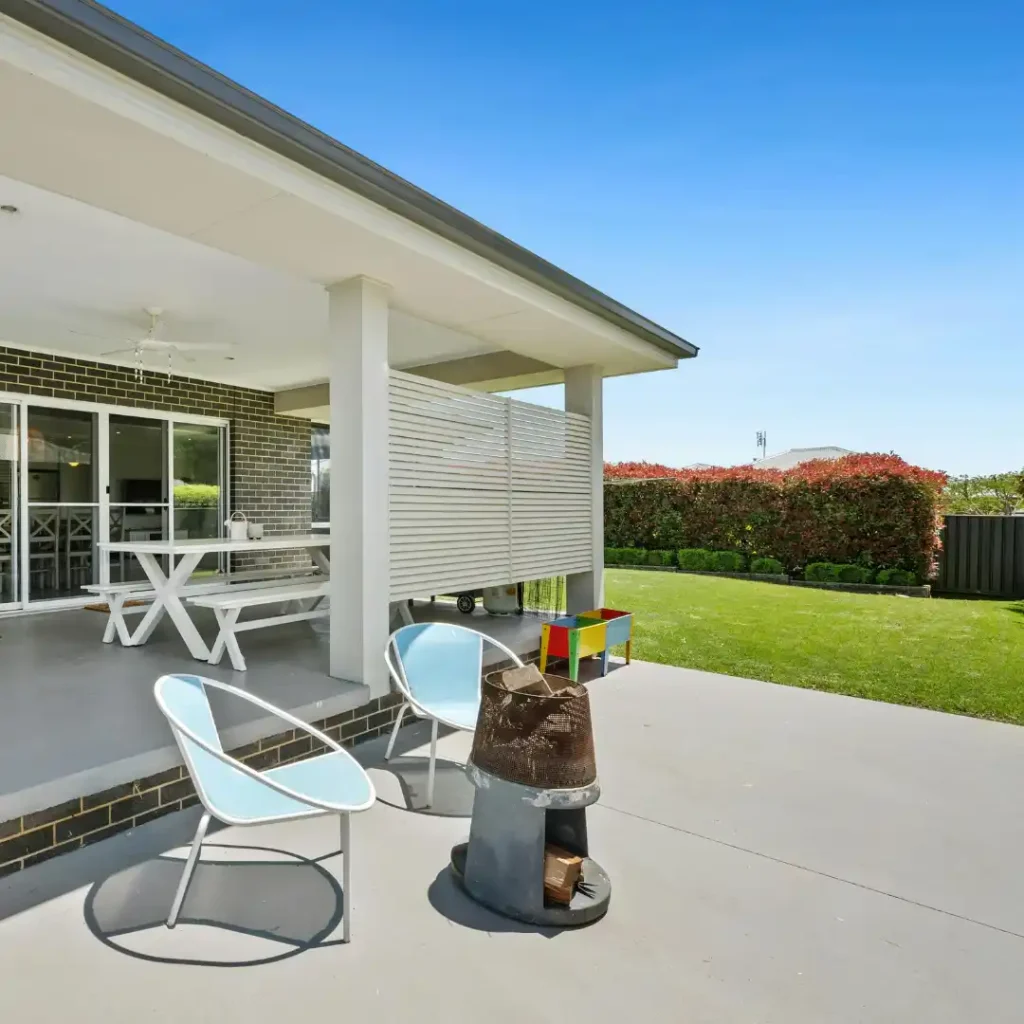
Long-Term Care and Maintenance of Concrete Slabs
A concrete slab is low maintenance, but regular care extends its lifespan and keeps it looking good. Many Sydney homeowners and businesses use these practices to protect their slabs.
Cleaning and Surface Care
Sweep regularly to remove dirt and debris.
Pressure wash outdoor slabs to prevent mould and algae growth.
Avoid harsh chemicals that can weaken the concrete surface.
Sealing the Slab
Applying a concrete sealer protects against stains, moisture, and surface wear.
Sealers are especially useful for driveways, patios, and high-traffic areas.
Resealing every few years keeps the slab in top condition.
Crack Prevention and Repairs
Small cracks are common due to natural shrinkage.
Promptly sealing cracks prevents them from spreading.
For larger structural cracks, professional assessment is recommended.
Protecting Against Heavy Loads
Use proper load distribution when placing heavy objects or machinery.
Garage and industrial slabs should not be overloaded beyond their design limits.
Enhancing Lifespan with Regular Checks
Inspect annually for signs of settlement, erosion, or drainage issues.
Early detection of problems reduces costly repairs later.
By following these steps, a concrete slab can easily last 30–40 years or more, offering strength and reliability across generations.
Frequently Asked Questions (FAQs)
Concrete contractors in Sydney handle all aspects of concreting, including site preparation, formwork, mixing, pouring, and finishing. They provide services for driveways, patios, slabs, footpaths, retaining wall footings, and decorative finishes such as stamped or coloured concrete.
When selecting concrete contractors in Sydney, check their experience, previous projects, compliance with Australian standards, and the quality of materials they use. Reviews, referrals, and transparent pricing are also helpful indicators of reliability.
The time frame depends on the driveway size and finish type. Most concrete driveways in Sydney take 3–5 days, including preparation, pouring, curing, and finishing. Decorative options like exposed aggregate or stamped concrete may require additional time.
Yes, many concrete contractors in Sydney specialise in exposed aggregate driveways. This finish provides a textured, decorative surface with natural stones showing through, making it both attractive and slip-resistant.
The cost varies depending on the project size, thickness, reinforcement, and finish. On average, Sydney concrete contractors may charge per square metre for driveways, slabs, or patios. Decorative finishes such as coloured concrete or stamping typically cost more than plain concrete.
Concrete contractors generally recommend waiting at least 5–7 days before driving on a new surface. Full curing may take up to 28 days, but light foot traffic is usually allowed within 24–48 hours.
Yes, concrete contractors in Sydney often provide a range of decorative finishes, including coloured concrete, stamped concrete patterns, and stencil designs. These options allow homeowners to match driveways and patios with their property style.
Many concrete contractors in Sydney offer resurfacing and repair services. Driveway resurfacing can cover cracks, stains, or faded areas with spray-on coatings, stencils, or overlays, giving old concrete a fresh, durable finish.
Yes, concrete patios are popular in Sydney due to their durability and design flexibility. With options like exposed aggregate, stamped concrete, or coloured finishes, patios become low-maintenance outdoor living areas suitable for local weather.
Concrete contractors in Sydney usually recommend sealing surfaces every few years, cleaning regularly, repairing cracks quickly, and avoiding harsh chemicals. These steps extend the life of driveways, patios, and slabs.
Yes, most concrete contractors in Sydney work across both residential and commercial sectors. They provide solutions ranging from house slabs and driveways to larger projects like commercial footpaths, retaining wall footings, and industrial slabs.
Signs of an experienced contractor include clear communication, detailed quotes, knowledge of different concrete finishes, and a portfolio of completed work. Skilled concrete contractors in Sydney also understand local soil, drainage, and weather conditions that affect long-term results.
